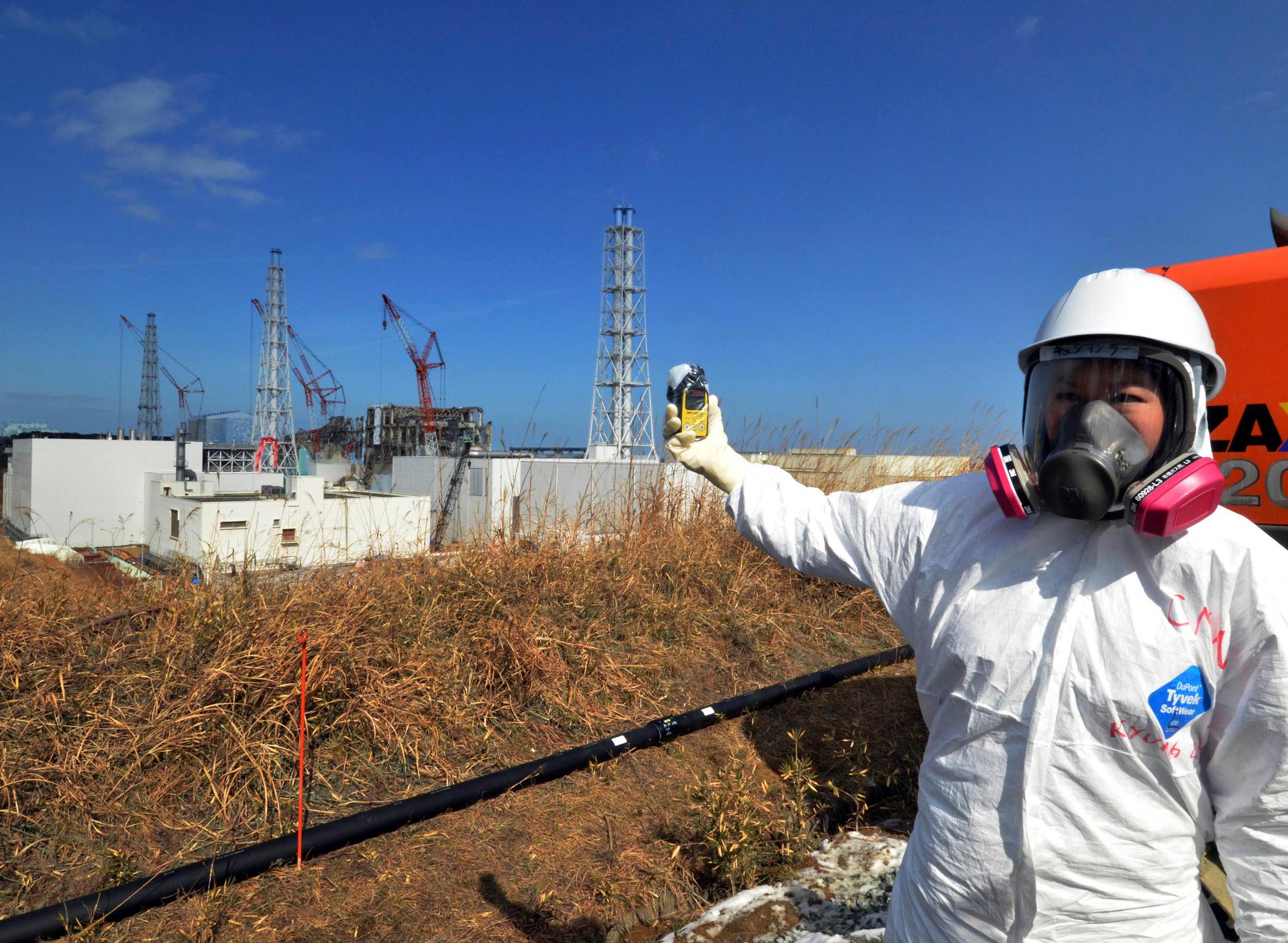Journalists allowed up-close look at efforts to dismantle Fukushima Daiichi nuclear plant
A journalist checks radiation levels with her dosimeter near the crippled Fukushima Daiichi nuclear power plant on Feb. 28, 2012. Members of the foreign media were allowed into the plant on Tuesday ahead of the first anniversary of the March 11, 2011 tsun
Foreign journalists were allowed into the crippled Fukushima nuclear plant recently, for the the first time since the disaster there nearly a year ago.
They donned protective clothing and masks necessary to document the work of some 3,000 people who are working around the clock to make the plant safe again.
BBC correspondent Roland Buerk talked to several workers who recall the feeling that they had to flee when the disaster was unfolding last March.
Now, there’s a 20-kilometer exclusion zone around the plant, which narrowly avoided total disaster, a recent report found.
“Fields are overgrown,” Buerk said. “As we get closer to the Fukushima Daiichi plant, the source of the fears of the Japanese people for nearly a year now, the radiation levels are rising steadily.”
Inside the control center of the plant, some 100 people work, monitoring temperatures, pressure-levels and, of course, radiation, as the plant is being put out of commission.
“On the wall, there are posters pinned up with hand-written message of support. There’s a Japanese flag as well,” Buerk said.
The goal, workers say, is to prevent radioactive gases from being released further.
The improvement in the situation is noticeable. Journalists, in full protective suits, are allowed within about 200 meters of the reactors that are inside what were once reactor buildings and are now more like skeletons.
“Above them, red and white cranes. Inside the building skeletons, you can see people working in white suits,” Buerk said. “It’s so radioactive, we’re only allowed to stay for five minutes.”
The ultimate goal is to remove the nuclear fuel from the Fukushima reactors and dismantle it. But don’t expect that to happen any time soon.
Japan’s government warns that could take up to 40 years.
The story you just read is accessible and free to all because thousands of listeners and readers contribute to our nonprofit newsroom. We go deep to bring you the human-centered international reporting that you know you can trust. To do this work and to do it well, we rely on the support of our listeners. If you appreciated our coverage this year, if there was a story that made you pause or a song that moved you, would you consider making a gift to sustain our work through 2024 and beyond?
